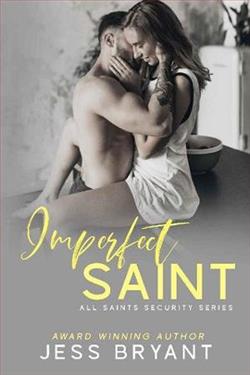Page 19 of Love Among the Shadows
For a moment, he seemed lost in thought, his brow furrowing as he pieced the information together. Then, with a slight chuckle, he broke the silence. “I shall make inquiries and provide you with a list of those who attended the Meryton assembly. As for myself…” His voice trailed off, the corner of his mouth curling with a wry amusement. “Should I consider myself a suspect?”
Fitzwilliam shook his head. "I know you, Colonel. You are no murderer."
"Well, one can never be too certain," Forster replied with a smile. "But I shall certainly point you in the right direction. I will need to consult with the organiser of the Meryton assembly, though. As for the militia, there are a few who have been seen in company with Mr Darcy—either at my house or with Mr Bingley."
"The individuals at the ball are my priority," Fitzwilliam replied. "If I require further assistance, I will not hesitate to ask."
With that, Fitzwilliam took his leave, and his next stop was the residence of the local magistrate, Sir Barnaby Fairchild. Fitzwilliam had learned that Sir Barnaby had been involved in the investigation from the very beginning, and now, he sought the magistrate’s counsel.
Upon arriving at Sir Barnaby’s house, Fitzwilliam was shown into the study, where the magistrate was hunched over a pile of notes. As Fitzwilliam introduced himself, the magistrate looked up, his expression darkening slightly. He listened to Fitzwilliam's explanation with a keen attention that could only be rivaled by that of Colonel Forster himself.
"Colonel," Sir Barnaby greeted him with a nod, when Fitzwilliam was done with his explanations. "I have heard of your request. I understand you are working with Mr Darcy’s case. It is a peculiar situation, indeed, given that you are his cousin."
Fitzwilliam straightened at the mention of his relation to Darcy. "Indeed," he replied. "But I come with no malice. Darcy himself is deeply troubled by these deaths and desires nothing more than to uncover the culprit."
Sir Barnaby’s expression grew even more sombre as he spoke. "The first death was caused by poisoning, though we have yet to confirm whether it was self-inflicted or not. The second man, Thomas Granger, died of asphyxiation in his room at Netherfield. Two days ago, the doctors from St. Albans confirmed that he was not ill. He was murdered. Someone snuck into his room and took his life."
Fitzwilliam leaned forward, his brow furrowed in concern. "What led the doctors to such a conclusion?"
“The body showed signs of a struggle,” Sir Barnaby explained, his voice low and serious. “Bruises on his hands, as though he had been restrained. There were no visible wounds on his head or chest, but the doctors believe the killer must have found a way to silence him before he could cry out.”
"That would make sense.”
Sir Barnaby nodded in agreement, his face grave. "He was a stable boy, strong, no doubt," he said, rubbing his chin. "He would have fought hard if he had not been restrained, one way or the other."
Fitzwilliam leaned back slightly in his chair, his thoughts racing. "You seem to have made some progress, sir. This helps narrow the list of suspects considerably. As you may know, there may indeed be a connection between these deaths and Mr Darcy, but not as a perpetrator—perhaps instead as apotential victim. Whoever is targeting him has an issue with him, and for that reason, I have come to ask for your help. I need a list of those you have spoken with in connection with these events. Any information you can provide will be most useful. Additionally, I would request permission to visit late Mr Edwin Harper’s house. I’ll like to see that crime scene. I am not here to undermine your investigation, but there is a chance that I might see something you or the parish constable missed."
The magistrate raised an eyebrow, clearly considering the request. Fitzwilliam could see the wheels turning in his mind. After a brief silence, Sir Barnaby spoke, his voice tinged with hesitation. “Frankly, this entire affair has been a perplexing one for me as well. We have made little progress. There is no solid evidence pointing to anyone, aside from the arguments that have been reported.”
“You were not at the balls, then?” Fitzwilliam asked, his curiosity piqued.
Sir Barnaby sighed, a faint trace of weariness in his voice. "I arrived late to the Meryton Assembly. I had a stomach complaint that kept me from attending Mr Bingley’s ball at Netherfield. I heard of the arguments, but I did not witness them myself."
Fitzwilliam, considering this carefully, nodded. "That would exclude you from the list of suspects, I suppose," he said, offering a polite but pointed smile.
The magistrate gave him a suspicious look but remained silent. After a moment, he rose from his chair and handed Fitzwilliam a small packet of papers. "That is all we have found thus far," he said. "I will instruct Mr Tobias Hatch, the parish constable, to allow you access to the late Mr Harper's house. As for Thomas Granger's residence, I believe you will have no difficulty with that. I trust you must have seen it seeing as you stay at Netherfield?"
Fitzwilliam nodded. "Yes, I have. Thank you."
Sir Barnaby regarded him for a moment longer, then gestured toward the door. "Then, I suppose you should get to work."
Fitzwilliam opened the papers with a practiced hand, scanning the contents. They included the death reports for both Mr Harper and Thomas Granger, along with a list of suspects. To no surprise, Darcy’s name was at the top of the list. Closing the papers, Fitzwilliam stood to leave.
Just as he was about to exit, the magistrate’s voice stopped him. "And Colonel Fitzwilliam..." Sir Barnaby said, his tone suddenly serious, his gaze narrowing in an almost unreadable manner. Fitzwilliam paused in the doorway.
"I am not foolish enough to hand over these documents without proper caution," the magistrate continued, his eyes steady. "They are written duplicates, copies I had intended to give to Colonel Forster tomorrow or the next, should I find anything more definitive. I have asked the Colonel help before, but he didn’t take the matter seriously. I wagered that with a little concrete evidence, he would help. What that means, Colonel, is that we will continue with the investigation, but God knows we could use the militia's assistance. Since you are here, I trust you will lend your help. However," he added, his expression turning sharper, "should your cousin have called you here to assist in a cover-up—"
"Not at all," Fitzwilliam interjected quickly, his voice firm. "He only called me here to help uncover the truth, to find the killer before his reputation is further damaged or before he kills another person.”
The magistrate’s grimace deepened. “He? … you know it is a man already?” he asked, almost incredulously.
Fitzwilliam’s jaw tightened, his eyes flashing with certainty. "You said it yourself, sir. Thomas Granger was a strongman. He was overpowered in his room before he could make a sound. I know no woman who is strong enough to overpower a man who worked with horses."
The words hung in the air for a moment, and it was as if Fitzwilliam’s certainty had solidified the case. Sir Barnaby’s posture stiffened slightly, but he did not argue further. He gave a small tilt of his hat in acknowledgment.
"You are most helpful, Colonel," he said. "You may now proceed, and should you need anything else, do not hesitate to ask."
Fitzwilliam left the magistrate's study, his mind focused on the new leads before him. There was still much to uncover, and now that the investigation had truly begun, he could not afford to let anything slip through his fingers. The killer was out there, and it was only a matter of time before the truth would be revealed.















